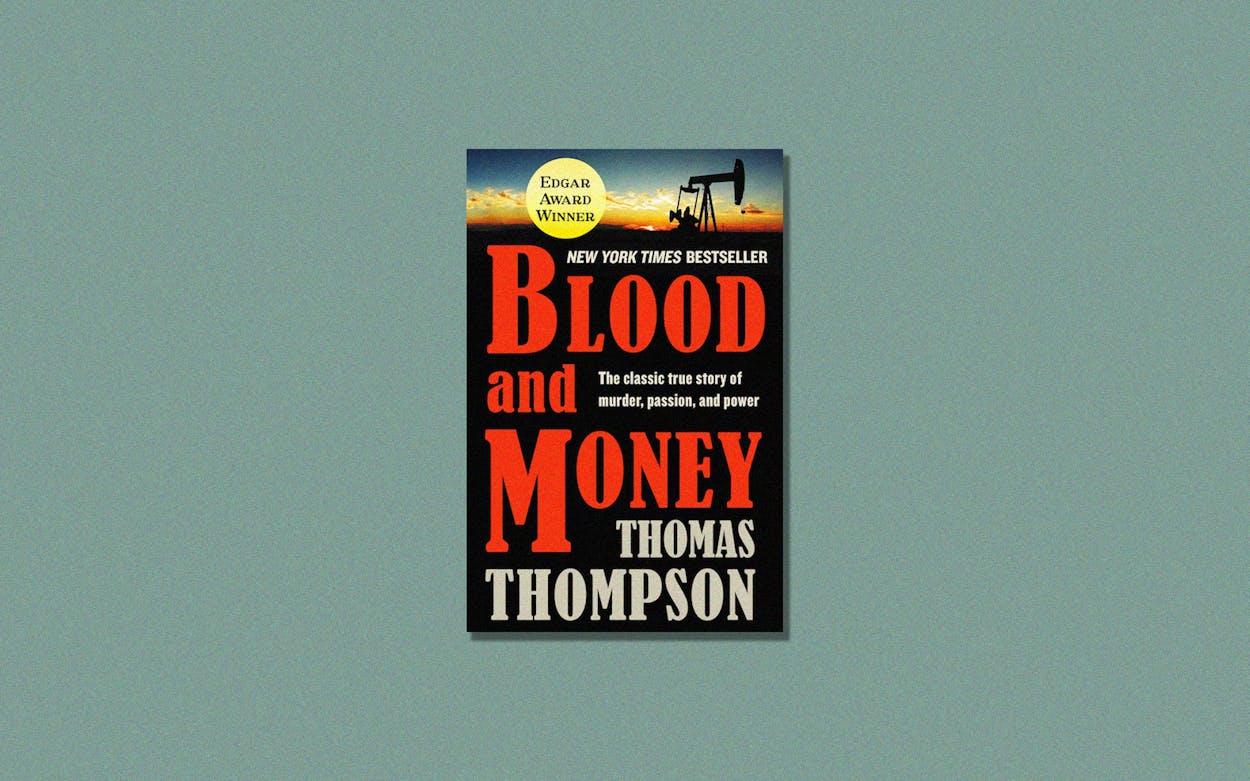If Skip Hollandsworth’s December feature on Candace Mossler, the Houston socialite accused of murdering her husband, is a thrilling shot of sex scandal sensation—and it is—Thomas Thompson’s 1976 book Blood and Money is the satiating, salacious chaser. The true-crime tale is utterly bingeable and contains everything a Texas reader requires for a good time: new oil money, an equestrian heiress, a handsome plastic surgeon, gossip-worthy trials, River Oaks mansions, and, of course, blood. The twists and turns of the book’s murder plots (there are two) would alone make it worth reading, but it’s the cast of characters and depiction of the fledging city of Houston that make the work a memorable snapshot of Texas in the sixties. It’s a must-read.
—Taylor Prewitt, social media editor
Watch a heartbreaking documentary of a would-be folk star
The first thing that strikes you about Karen Dalton is her voice. She sounds like a dust bowl Billie Holiday, singing sad songs in a low lonesome tone. The second thing that strikes you—at least after watching the documentary Karen Dalton: In My Own Time—is her teeth, or at least the two missing ones, lost when she got punched in the face during an argument between two boyfriends in New York City in the sixties. Trouble followed Dalton everywhere she went. Born in Bonham, northeast of Dallas, in 1937, she moved with her family to Enid, Oklahoma, where she grew up in poverty. She was twice married and divorced by age 21. She had two kids, but she left them behind and took her guitar and banjo to New York City. Soon she was sharing Greenwich Village stages with Fred Neil and Bob Dylan (who called her his favorite singer in the downtown folk scene), fingerpicking in her own style, her long black hair hanging in her face. Dalton was mostly uninterested in the music business and she didn’t write her own songs, either. What she did was sing songs by others, folkies like Tim Hardin but also bluesmen and country singers like George Jones and Lead Belly. At the same time, she battled serious addictions to heroin and alcohol. Unlike most of her folkie peers, the ache in her voice came from her life; that voice broke like her life broke. In the documentary, Nick Cave talks about the first time he heard her song “Something on Your Mind” on a cassette in his car and had to pull over to the side of road to cry. By the end of the film, when Dalton dies of AIDS at age 55, you’ll be crying too.
—Michael Hall, executive editor
Read footnotes to a nonexistent text
Jenny Boully’s 2002 book The Body: An Essay is made up exclusively of footnotes. The work transcends form and genre, transporting the reader to a place of dreamlike fascination1. Coming in at 75 pages of footnotes upon footnotes (with the occasional footnote within a footnote), the work explores themes of love, loss, introspection, and womanhood. Boully, who grew up in San Antonio, sends the reader on a pinball-like journey through past relationships with lovers, family members, and literature, along with a series of bizarre nightmares: “Besides the obvious lost marble or stolen purse or misplaced lottery ticket, the theme of loss preoccupied her even in sleep.” As the omicron variant of COVID-19 continues to deliver loss throughout Texas and the world, Boully’s nonlinear grieving process is comforting. The Body: An Essay is the product of a writer free from conventional inhibitions; the written equivalent of rock climber without a rope.
1But beware, you may never look at footnotes the same way again.
—Maya Mojica, editorial intern
Listen to Normani country-fy a classic
On his new show That’s My Jam, Jimmy Fallon brings together celebrity guests for a variety game show that features the myriad of music and comedy games that originated on the Tonight Show. In a recent episode, Houston-raised singer and dancer Normani plays a round of “musical genre challenge,” in which she spins a digital wheel to select a popular song and a new genre to sing it in. Normani’s task was to turn TLC’s “Creep” into a country song. The game is supposedly “unpredictable,” but who really believes celebrities are genre-bending songs off the dome? Part of the amusement lies in Fallon’s attempts to sell the randomness of the game, like when he asks Normani if she even knows the song. Whether it’s a rehearsed or impromptu performance, the remixes are usually fun (or funny), and Normani’s is no different. She replaces the iconic “oh I, oh I” with a drawn out “yeehaw!” and adds a twang that made me realize the lyrics are perfect for a country song. If I knew how to two-step, this is what I’d dance to.
—Doyin Oyeniyi, assistant editor
- More About:
- Film & TV
- Books
- Television






